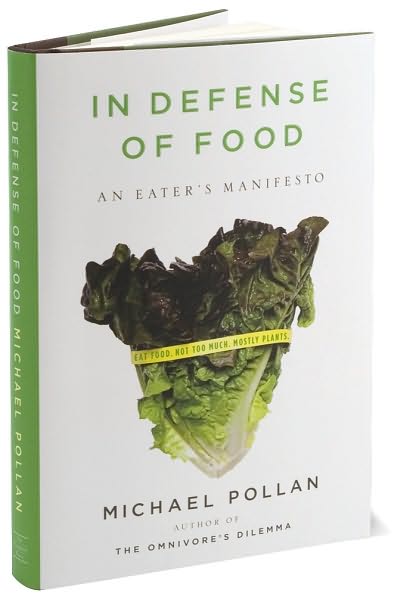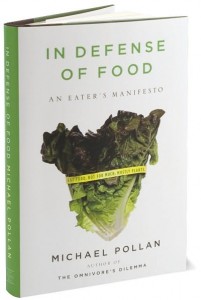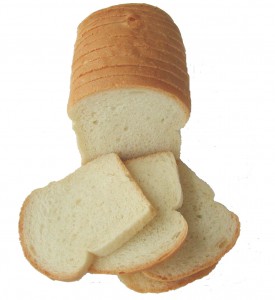Happy Book Club Monday!
Happy Monday everyone.
As you know, every Monday on Badger Girl Learns to Cook, I review a book related to food and share it with you. I love hearing your feedback and your recommendations for further reading.
I have some cookbooks in queue, but I wanted to make sure I didn’t miss Michael Pollen’s In Defense of Food.
It’s actually been a few weeks since I read it and I really enjoyed it. I have been teasing you with it for weeks, so here goes…
In Defense of Food Overview
Eat food. Not too much. Mostly plants.
This is the famous opening line of In Defense of Food, but to say that it summarizes the book is a gross simplification.
In Defense of Food, Pollen offers so much more. Yes, he offers advice on what to eat, but that is just one section of the book. Before Pollen can tell us what to eat, he needs to establish himself as an expert. And to do that, he chooses to play the role of the historian/academic expert. He traces the history of how we, as a Western society, have approached food; identifies various studies (and their inherent flaws); and then offers advice for getting over ourselves (essentially) and getting back to just eating.
As a previous academic, I enjoyed the book. I love studies and I love it when people establish their authority through demonstration of knowledge. And as a previous academic, I also became completely enamored with my subject. I read excerpts out loud to people, exclaimed loudly (in public) when I read something that interested me, and if there was no one nearby to read to, I even (gulp) called people on the phone to read to them or texted passages to people. I became THAT person.
In short, I don’t think I was terribly popular when I read this book.
Manatee and one of my sister-in-laws bore the brunt of this, but there were other victims.
I’m sorry.
But wasn’t it interesting???
In Defense of Eating
Another annoying trait that I adopted in regards to this book is that I kept calling it In Defense of Eating and would then bicker with Manatee about who was right (he was), but I had a point.
Over and over Pollen talks about how we can’t just look at one piece of the puzzle, whether it’s one nutrient, one food, or the act of eating. You have to look at the whole picture. Not just what you are eating, but eating with what? Where? How? What did what you are eating eat? And what else are you doing in your life? Do you exercise? Sit at a desk all day?
So, I would argue that this could be called In Defense of Eating because he is defending a way to eat and to approach food that takes in the whole picture.
The New Crack
You didn’t think you were going to get out of this without hearing one my “oh-my-gosh-this-is-so-interesting” exclamations, did you?
Tosca Reno, clean eating goddess, identifies the new cocaine as white sugar. I don’t disagree, but there is a much more dangerous substances out there (in my opinion).
White flour.
To me, it’s more dangerous because it’s more common. While we would never dig into a bowl of sugar, we have no qualms about eating a bowl of pasta or a sandwich on white bread.
Pollen gives a history of how we came to that “gorgeous white powder” that “was nutritionally worthless” and I was spellbound. Being an academic, I loved reading not just why we shouldn’t eat it but also how it came into existence and evolved. Yes, I want to know what I should and shouldn’t eat, but I also want to fully understand how it got here in the first place.
Contentions
Manatee and I did not agree on this book.
Yes, he loved what the book said. But while I reveled in the studies, he was bogged down by them.
“I don’t care about the study of Aboriginees and yes, the nurse study was flawed, so why does he keep talking about it?” This is what he would exclaim when he was reading it.
We agreed to disagree.
In Conclusion
Manatee and I both like books that support our way of life and we are not afraid to admit that. I mean, who doesn’t? Don’t we all like to feel justified that we are “doing it right”?
So, we did like the book and we do think it’s important.
Do we love the book for what it is or how it makes us feel? That is a good question. I would say that I think it is worth reading even if it is just to get a better understanding of how we as a society have created the study of nutrition, how our approach to eating has changed over the years, and how the foods we eat have changed.
But I also agree with Pollen’s message.
Eat real food. Not too much. Mostly plants.
*********************************
Have you read In Defense of Food? What did you think?





